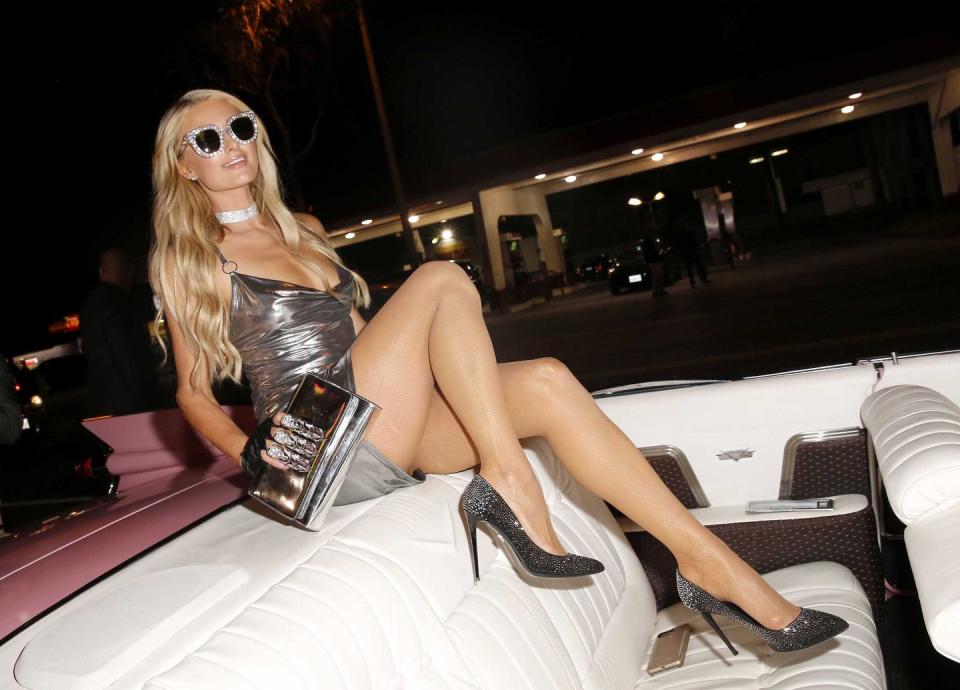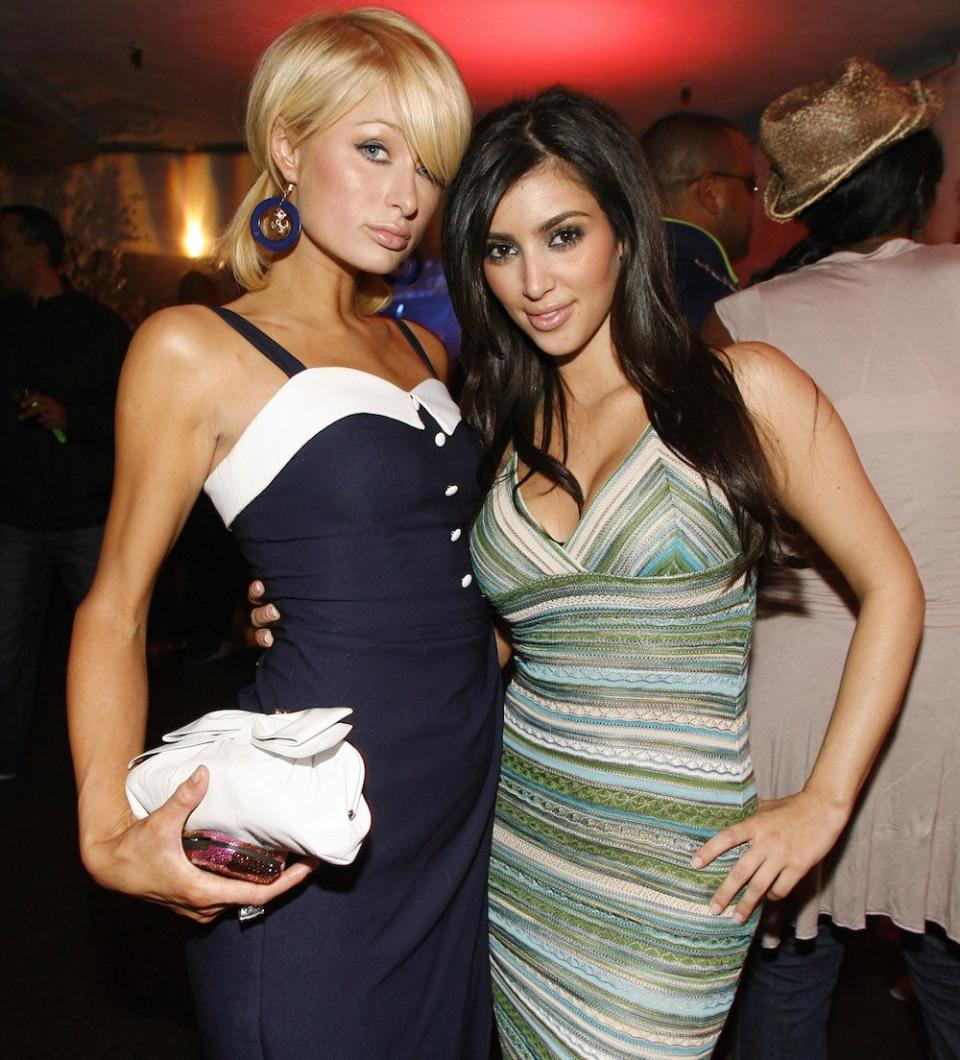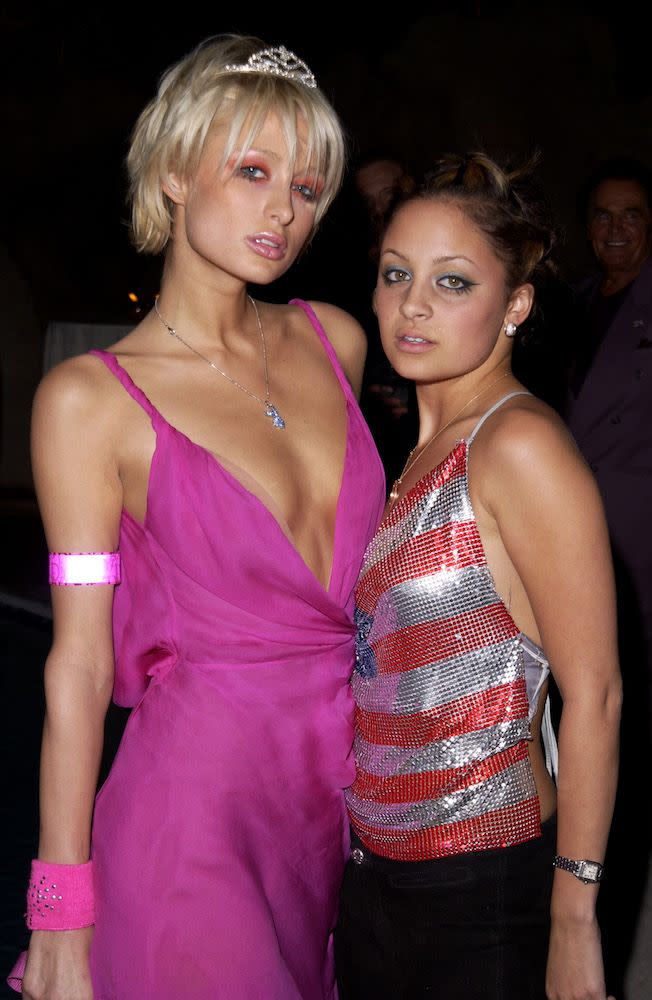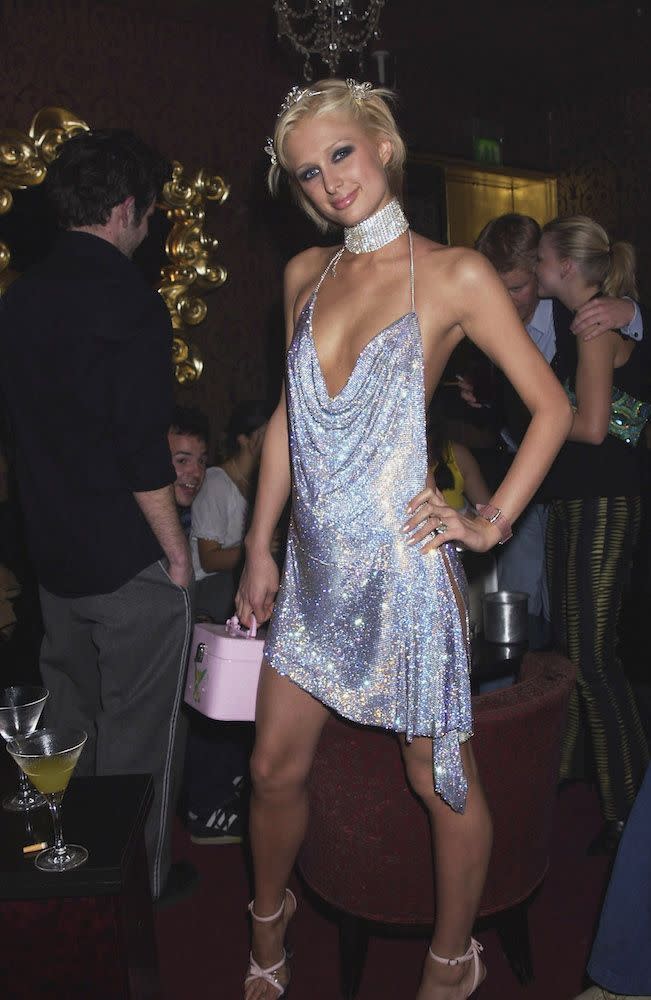Sorry Paris Hilton, We Should Have Had Your Back

At a certain point, I tossed Paris Hilton’s name to the back of my mind. For years, it's lain there unused, forgotten like a chipped Nokia 3310, Blockbuster membership card or an unfed Tamagotchi.
At the beginning of the millennium, however, it was an entirely different story.
It’s hard to imagine the celebrity landscape as it stands without Paris. Throughout my teens, the hotel heiress was as synonymous with the Noughties as flip phones, Ugg boots and wipe-clean Jane Norman bags. Long before the words ‘influencer’ and ‘personal brand’ entered our vernacular, she was the original ‘celebutante’ using her reputation as ‘famous for being famous’ for financial gain and FROW access.
Paris' red-soled Christian Louboutin heels carved a path for fellow socialites itching to shun their Ivy League-educated family names for multi-hyphen careers as DJs, models, singers, entrepreneurs and reality stars. As Kim Kardashian recently stated: 'The best advice that [Paris] ever could’ve given me is just watching her.'

For years, she put her name – and face – on everything she could, from sparkling wine and books to fast food adverts, dogwear and covers of glossy magazines. And it all paid off. She now has a successful perfume and handbag line worth $3 billion, other product sales raking in over $10 million a year, appearance fees valued up to $100,000 and there are rumours that a single DJ set earns her a cool $1 million, according to Business Insider. Think of her what you will, but you don’t create that level of success by resting on your Chanel-clad laurels.
But while many of us have developed respect for her decision to capitalise on fame for fortune, the creation of her spoilt, ‘bimbo in Balenciaga’ persona (that came as part of the package), has been of great personal cost to the 39-year-old.

During the Hilton era, Paris was infamous for courting the paparazzi with her larger-than-life lifestyle, ‘less-than-conservative’ clothing and ‘unexpected’ photo opportunities outside nightclubs. For years, we chuckled at her baby voice, legally-trademarked catchphrase ‘that’s hot’ and her ‘airhead’ personality spawned countless imitations, even inspiring on-screen, fictitious characters like Mean Girls’ Regina George and Legally Blonde’s Elle Woods.

Despite regularly admitting that her public persona is entirely affectation (‘I'm not a dumb blonde, I'm just really good at pretending to be one’), she helped justify the world's belief that the privileged, unaware and ridiculously rich are ours to ridicule. Paris was a real-life Barbie with a heartbeat, that we felt we could play with without consequence.
Making fun of the socialite became so widely accepted, that when she became the subject of a leaked sex tape in 2003, that too became ammunition. One Night In Paris was recorded in 2001, when she was just 18 years old, with her ex-boyfriend, Rick Soloman. It was released two years later – without her knowledge or consent - and became material for comedians like Joan Rivers, TV host David Letterman and newspapers who labelled it as a ‘sex romp’ and ‘porno film’. Fast forward 13 years and revenge porn – as it’s known now – is illegal in England, Wales and several US states and carries a prison sentence of up to two years.
It’s only with a bit of 2020 hindsight that we see how bizarre, cruel and wildly misinformed our attitudes about sex, consent and abuse were back then.

In her newly-released YouTube documentary, This Is Paris, she describes the release of the tape as being ‘electronically raped’ by the public. ‘If that happened today it would not be the same story at all,’ she notes. ‘But they made me the bad person. Like I did something bad.’ Unfortunately, Paris was just one in a long line of targets who were wrongfully victim-blamed. And because she'd already turned herself into a gag, she was treated as fair game, even when the law (and her consent) had been neglected.
The sex tape’s release came five years after the Clinton–Lewinsky scandal, during which former White House intern Monica Lewinsky was internationally slut-shamed and tormented for her sexual relationship with the then US president. Despite his gross abuse of power and privilege, the media narrative dubbed her a ‘tubby’ ‘little tart’ and a ‘young tramp looking for thrills’. Lewinsky was metaphorically ripped apart. Clinton, however, served another three years in Office.
For decades, long before the #MeToo movement made its mark on the world, former film mogul Harvey Weinstein’s harassment and abuse of women was a well-known, but quiet smudge on Hollywood’s reputation. Instead of calling out his exploitation of women, it was made light of in award shows and on TV. His victims? Laughed at, ignored and condemned for being ‘money-grabbers’, ‘sleeping their way to the top’ and using his power to get into fancy parties.

Hilton’s rising fame also fuelled the long-held, absurd narrative that young, female A-listers are liabilities. In the press, stars like Nicole Richie, Mischa Barton and Lindsay Lohan were simultaneously criticised and praised for creating a ‘size zero’ culture. They were almost daily victims of 'up-skirting' - now a criminal offence in the UK - when photographed climbing out of cars and leaving restaurants. Jokes and Halloween costumes were made after Britney Spears shaved her head during a psychiatric breakdown.
Fortunately, society has done a lot of maturing and self-educating in the years since Hilton’s sex tape. For example, former pin-up girl Emily Ratajkowski has now been praised by women – and men – for penning a heartfelt essay for The Cut earlier this month about an alleged sexual assault. Meanwhile, actor Chris Evans’ fans have rallied together to dissuade social media users from sharing or saving images of his genitalia, after he accidentally posted a photograph of his penis online. But we’ve still got a long way to go until we realise the full value of consent.
Much in the same way that a woman in a short skirt doesn't court a sex attack, just because Paris chose to paint herself as a punchline, doesn't mean that in the context of her private video becoming public against her will, she was 'asking for it.' It's a bit late now but, Paris love, we should have had your back.
Like this article? Sign up to our newsletter to get more articles like this delivered straight to your inbox.
In need of more inspiration, thoughtful journalism and at-home beauty tips? Subscribe to ELLE's print magazine today! SUBSCRIBE HERE
You Might Also Like

